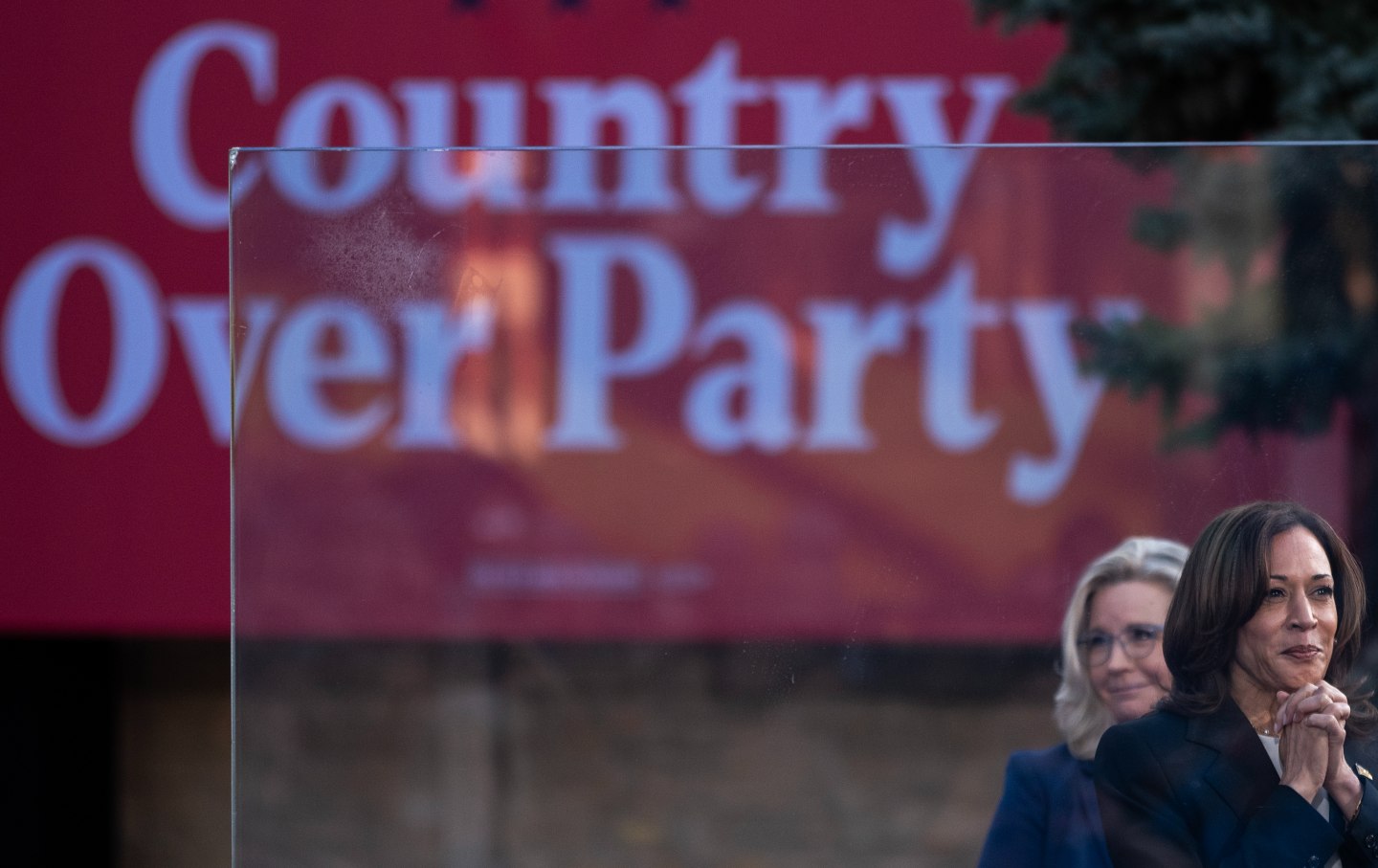Biden Complacency Is Just As Bad as Biden Panic
Don’t wet your bed. Organize!

Political parties, strange to say, attract distinct personalities. Broadly speaking, Democrats tend to be compulsive worrywarts, while Republican ranks are rich in cocksure bullies. Even when Democrats are on a winning streak, they fret (with good reason) that it will only take a few strokes of bad luck to smash all their hopes to smithereens.
Democrats have won the popular vote in seven of the last eight presidential elections. One party having that kind of majoritarian dominance on the national stage is rare—but Democrats know it doesn’t amount to as much as it should. All it takes is a few mishaps (the badly designed “butterfly ballot” in Florida in 2000, James Comey’s oafish last-minute electoral intervention in 2016) to turn a popular vote victory into an Electoral College defeat. Even a strong record of winning the national popular vote in Senate and House races doesn’t always translate into political power for the Democrats: because they represent more populous states in the Senate—and because congressional districts are shaped by gerrymandering—Democratic votes count for less in Congress.
Conversely, Republicans have responded to their repeated rejections on the national stage not by moderating their positions but by becoming more extreme. Republicans seem to think they enjoy some divinely ordained right to rule as a reactionary minority party whether by hook or by crook (or more precisely whether by gerrymandering or the quirks of the Electoral College). By all political logic, the GOP should have been shamed by its recent string of losses: It lost the House in 2018, lost the presidency and the Senate in 2020, underperformed in 2022, barely recapturing the House and failing to win the Senate, and it continues to underperform in special elections, despite the fact that being out of power should mean it can mobilize more voters.
Yet none of these losses have convinced Republican voters or even party leaders that they need to come up with a new message. Instead, Republicans are on track to renominate Donald Trump because of their delusional conviction that he won the 2020 election.
The prospect of a Biden-Trump rematch is turning Democrats, not self-assured at the best of times, into even bigger nervous wrecks. Biden’s approval rating remains low, hovering in the vicinity of 40 percent approval and 55 percent disapproval, despite a recent White House push touting the achievements of “Bidenomics.” The public is stubbornly pessimistic about the economy—which puzzles Biden supporters who cite economic reports showing robust employment and declining inflation. These statistics fail to reflect how many Americans experience the economy, with Covid-produced disruptions persisting while the expanded welfare state that helped poor Americans cope during Covid is now being systematically dismantled.
A poll released last Thursday by CNN/SSRS showed Biden losing to a raft of Republican candidates: not just Trump (47 percent to Biden’s 46 percent) but also Nikki Haley (49 percent to 43 percent), Mike Pence (46 percent to 44 percent), Tim Scott (46 percent to 44 percent). In this poll, Biden can’t even measure up the widely despised and utterly ridiculous Chris Christie (who leads 44 percent to 42 percent).
Given these numbers, should Democrats be pulling the emergency brakes on the Biden train? Is Biden’s decision to run again likely to lead to Trump’s second triumph and the ensuing wreckage of the Democratic Party, the United States, and, quite possibly, the world?
My colleague Joan Walsh thinks not.
Writing in The Nation on Thursday, Walsh mocked the current “Joe Biden Panic” as an example of a hyperventilation “worse than Shark Panic, Wildfire Panic, Burning Man Panic, and I-can’t-get-TSwift-tickets panic.” Walsh is correct to note the dangers of knee-jerk alarmism, something Democrats are all too prone to. There are reasons to discount Biden’s poor polling numbers and think that he still has a healthy shot at reelection. But the flip side of the Biden Panic is Biden Complacency, which is equally dangerous. It’s worth inspecting Walsh’s arguments to make sure they don’t fall into the trap of offering false hope.
Walsh is on the strongest ground when she cites former Obama adviser Jim Messina’s contention that abortion is an X factor that could confound polling. There’s ample evidence that a Dobbs effect has energized key Democratic Party voters, especially women and the young. The fact that the red wave fizzled in 2022 and that Democrats have overperformed for over a year in special elections is surely traceable to the Dobbs effect. One could also add that Biden will enjoy incumbency advantage (which helped Trump come surprisingly close to winning Electoral College reelection in 2020). And aside from Trump and Pence, the other GOP candidates haven’t been tested nationally. It’s unlikely that Nikki Haley’s strong numbers would survive the public’s learning about her plans to eviscerate Medicare and Social Security.
Messina’s other claim, quoted by Walsh, is also true—but irrelevant. Messina says, “Historically, we’re fucking bedwetters.” If the bedwetting (what we might more tactfully call election angst) is constant, then there is no way to know whether it is justified or not in a particular election cycle. In 2015, Messina tweeted out: “Dear Dems: A little early for bedwetting, isn’t it?” Given Trump’s victory the following year, the bedwetting of 2015 was amply justified. If only the Clinton campaign had been more anxious and dampened their sheets a bit more in 2016, they might have made more of an effort to bolster Democratic support in the Midwest and avoided the whole wretched farce of Trump’s presidency.
Walsh acknowledges that Biden’s support among people of color is softening. But she cites Bulwark writer Jonathan V. Last, who observes that this is a party-wide—not a Biden-specific—problem. This is hardly reassuring, since a party-wide problem is still a problem. Working-class Blacks and Latinos are foundational for the Democratic Party. If these voters start going the way of working-class whites in migrating to the GOP, the Democrats are in big trouble. Walsh cites as a mitigating factor the rising support among college-educated whites for the Democrats. But college-educated whites will not in the long run make up for weaker support among working-class people of color. Non-college-educated voters make up 65 percent of the electorate. There is no viable long-term political future for a party that steadily gains among college-educated voters while steadily losing non-college voters.
Popular
“swipe left below to view more authors”Swipe →Walsh downplays the Democrats’ problem with non-college-educated Black and Latino voters. “Do you think the Democrats have lured [white college-educated voters] with policies that suppress the interests of lower-income people of color?” she asks, then replies: “No, you don’t because they have not.”
This is, to say the least, disputable. Biden is certainly more active in pursuing working-class votes than Hillary Clinton was in 2016, but that is just clearing the lowest of low bars. Democrats have gained among college-educated whites in part by pursuing economic policies that are technocratic rather than populist. On the crucial issue of rising prices, Biden’s preferred path to fighting inflation has been to give leeway to the Federal Reserve chair Jerome Powell to raise interest rates—a policy that has the deliberate goal of halting wage growth. Biden has largely eschewed the alternative path to fighting inflation advocated by Senators Bernie Sanders and Elizabeth Warren, which involves crusading against corporate price-gouging and imposing price controls on key commodities. By refusing to spotlight the problem of corporate-driven inflation, Biden has ceded a crucial opportunity to win back wavering non-college-educated voters (both white and non-white).
More broadly, Biden, like Hillary Clinton before him, has deliberately cast the Democrats in the role of the pro-system party. Think about how Democrats have made the case for opposing Trump since 2015. For better or worse, the Democrats have framed their arguments to maximally appeal to white college-educated voters: Trump is a breaker of norms, a deviation from the great tradition of bipartisanship as embodied by John McCain; Trump is a threat to the bipartisan foreign policy consensus, so he had to be impeached over Ukraine policy; America is already great, and good Republicans like Liz Cheney oppose Trump.
These are messages that have great appeal to those already invested in the existing political order (preeminently college-educated whites). But they say little or nothing to those who, even though they might intensely hate Donald Trump, feel that the system needs a major shake-up. For such voters, both Hillary Clinton and Biden have offered a message that is fundamentally demobilizing. No wonder so many voters who once voted for the Democrats switched parties or stayed home.
Democrats like Clinton and Biden have created a political dynamic whereby anti-system sentiment can find voice only via demagogues like Donald Trump or fringe candidates like Robert Kennedy Jr. and Cornel West. That’s an incredibly risky strategy in a period when trust in the existing system is collapsing.
Democrats need to think about the voters who are disaffected from Biden and tempted to not vote—or to vote for a third-party candidate like West. Former Obama adviser Dan Pfeiffer recently highlighted polls showing Biden’s weakness among young voters (which is entangled with his problem among non-white voters, who tend to skew young). Biden’s recent move to lower drug prices is a good step in making a case to these voters, but he needs to seriously strengthen his economic populism. Biden also needs to highlight what he can do to fight unpopular abortion bans and rising GOP homophobia and transphobia. Voters want a fighter in their corner, and Biden’s caution weakens any sense that he’s a warrior on behalf of a popular agenda.
The way forward is to figure out how the majority Biden won in 2020 can be reassembled with a strong, positive, forward-looking agenda. In rebuilding the anti-Trump coalition, Biden panic is a trap. But so is Biden complacency.
Can we count on you?
In the coming election, the fate of our democracy and fundamental civil rights are on the ballot. The conservative architects of Project 2025 are scheming to institutionalize Donald Trump’s authoritarian vision across all levels of government if he should win.
We’ve already seen events that fill us with both dread and cautious optimism—throughout it all, The Nation has been a bulwark against misinformation and an advocate for bold, principled perspectives. Our dedicated writers have sat down with Kamala Harris and Bernie Sanders for interviews, unpacked the shallow right-wing populist appeals of J.D. Vance, and debated the pathway for a Democratic victory in November.
Stories like these and the one you just read are vital at this critical juncture in our country’s history. Now more than ever, we need clear-eyed and deeply reported independent journalism to make sense of the headlines and sort fact from fiction. Donate today and join our 160-year legacy of speaking truth to power and uplifting the voices of grassroots advocates.
Throughout 2024 and what is likely the defining election of our lifetimes, we need your support to continue publishing the insightful journalism you rely on.
Thank you,
The Editors of The Nation
More from
Jeet Heer 

Elon Musk Gives Democrats a Chance to Run Against Oligarchy Elon Musk Gives Democrats a Chance to Run Against Oligarchy
Donald Trump’s richest supporter has been busy finding new ways to corrupt democracy.

JD Vance Shows That the Future of the GOP Is in Racist Conspiracy Theories JD Vance Shows That the Future of the GOP Is in Racist Conspiracy Theories
Trump’s deluded fantasies have now become the GOP gospel.

The Harris Campaign Needs a Course Correction The Harris Campaign Needs a Course Correction
The vice president’s eager embrace of Republican support is one sign that the mistakes of 2016 are being repeated.

The High Cost of Biden’s Policy of Unconditional Support for Israel The High Cost of Biden’s Policy of Unconditional Support for Israel
Beyond hobbling Kamala Harris’s campaign, Biden is leaving behind a disaster that will last decades.

Kamala Harris Is Taking a Big Risk by Playing It Safe Kamala Harris Is Taking a Big Risk by Playing It Safe
The Democratic nominee is acting like protecting her small lead is more important than energizing her base. We’ve seen this story before—and it didn’t end well.

Fredric Jameson Named the System We Are Still Fighting Fredric Jameson Named the System We Are Still Fighting
The late literary critic revitalized Marxism to critique our postmodern and globalized reality.


